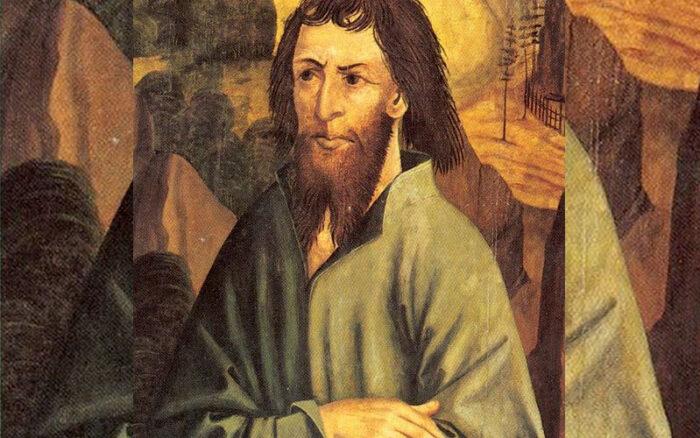
On Monday, March 21, the Catholic Liturgy celebrates the memory of St. Nicholas of Flue, a Swiss hermit, ascetic, and mystic.
Newsroom (22/03/2022 8:44, Gaudium Press) Once again, war is raging in humanity: it is the conflict in Eastern Europe that makes the heads of the whole world turn there, worried. And the big question is: how can peace be established? The life of St. Nicholas of Flue, a saint celebrated Monday, brings some answers.
Flexible, a holiness-focused life of multiple vocations
Saint Nicholas is from Switzerland, better known there as “Brother Klaus”, because this was his family name. He always wanted to be a monk or religious, with a life developed solely for the Lord, but the Lord had other plans.
Being from a poor family, Nicholas decided in his early teens not to abandon his father in tending the fields, the breadwinner of his family. When he comes of age, thinking to satisfy his desire to be a monk, he realizes the need of his family once again and, to fulfill their wishes, he marries.
His wife is a virtuous woman, and, with sanctity, she raises their ten children with Nicholas. Many of them pursue the virtuous life instigated by their parents, and some enter religious life, as if fulfilling their father’s wish.
However, when he sees that he is no longer needed in his home, with his children already well on their way, he asks his wife for permission to withdraw from society and goes to live as a hermit by the side of a stream. That is when Klaus becomes Nicholas, taking on the name of this 4th century saint. There, in the hermitic life devoted to the Lord he had dreamed of so much, St. Nicholas had no rest: many asked him for prayers, advice and positions. Saint Nicholas never said goodbye to anyone with an empty heart.
Saint Nicholas of Flue: a Saint for All Functions
Even though he assumed the hermitic life, St. Nicholas often went out to solve problems in his country. He was an excellent diplomat, on some occasions persuading rulers not to go down the path of war. But when it was necessary, he himself went out on campaign, as a soldier, to defend his homeland. To this day, many invoke St. Nicholas as Patron Saint of Switzerland.
He was also an advisor to princes and temporary rulers, who were always inclined to the knowledge and experience of the man of God. He was a catechism teacher, with individual preaching; he comforted hearts downcast by the pain of death, he was a friend, a father, a brother.
There was no piece of earth to which St. Nicholas of Flue was not called. But as a true saint, he did not abandon his prayers or interior life: whenever he could, he returned to his hermitic seclusion by the stream. His feast day was fixed for March 21, the date on which he delivered his soul into the hands of the Lord. Leaving all the country in mourning for his departure, Saint Nicholas entered the Heaven of holy men, having been a father, monk, hermit, teacher, and public man.
Peace: the tranquility of order
Where did St. Nicholas of Flue’s ability to appease wars, or to conclude them if need be, come from? And why do men today no longer possess this same gift?
Because, first of all, peace is achieved only by those who are at peace with themselves. And the saint is the only one who can achieve this state: in him, everything is well directed, everything is ordered. St. Augustine says that “peace is the tranquility of order.
There can be no peace in the world if there is no peace in the human heart. Unfortunately, this is why there are wars and disagreements: the complexity of the system, the difficulties between nations stem from this lack of order. Let us pray today to St. Nicholas to achieve for us what Christ came to bring on earth: “I leave you peace, I give you my peace”: to possess an ordered soul, not enslaved by sin. Then, and only then, will we live at peace with one another. (EPC)